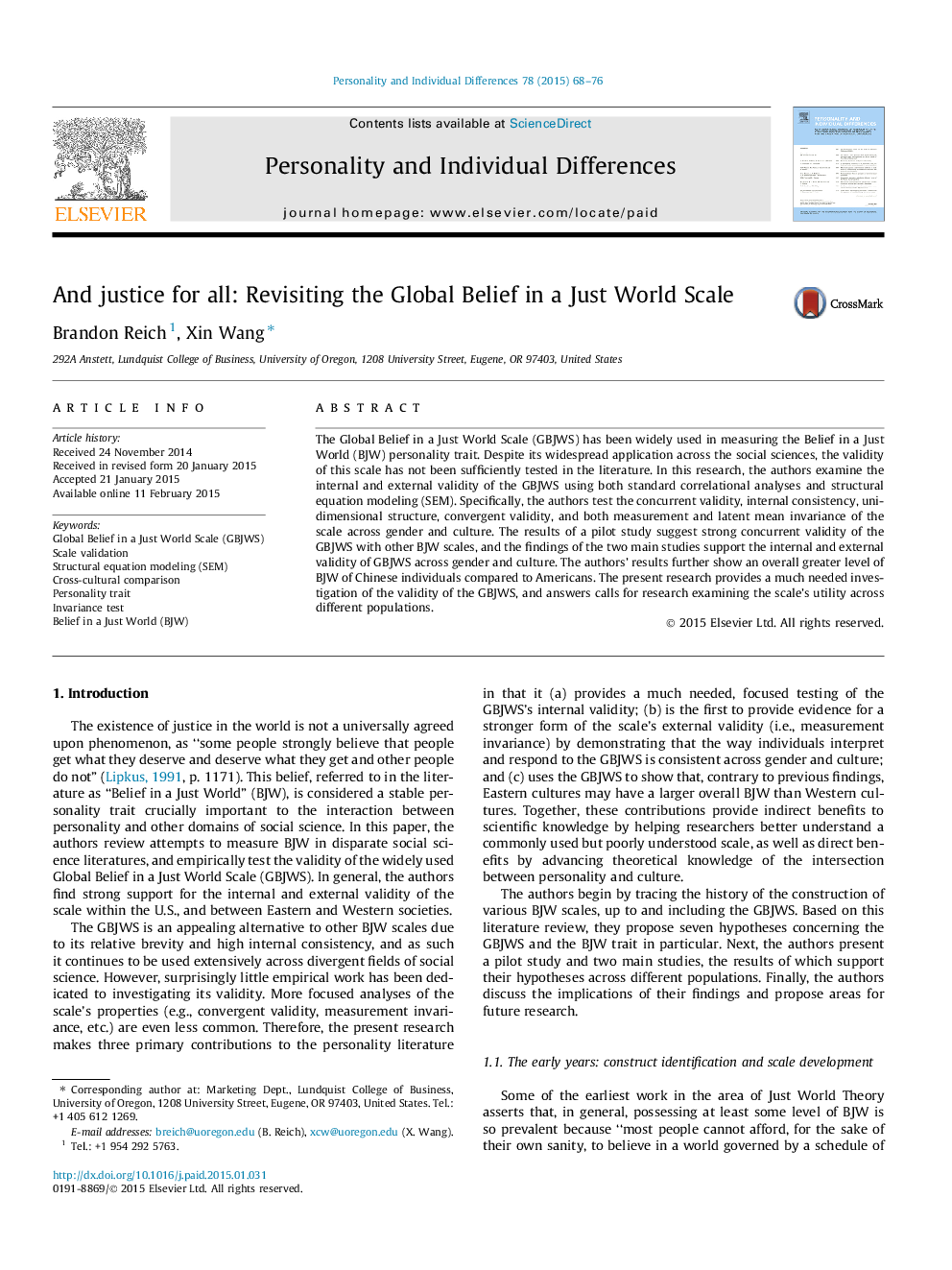| Article ID | Journal | Published Year | Pages | File Type |
|---|---|---|---|---|
| 890183 | Personality and Individual Differences | 2015 | 9 Pages |
•Global Belief in a Just World Scale (GBJWS) is widely used but poorly understood.•The authors examine internal and external validity of the GBJWS across gender and culture.•The authors find strong support for internal validity of the GBJWS across three studies.•The GBJWS exhibits measurement invariance across gender and culture.•Latent mean BJW scores are higher among Chinese individuals compared to Americans.
The Global Belief in a Just World Scale (GBJWS) has been widely used in measuring the Belief in a Just World (BJW) personality trait. Despite its widespread application across the social sciences, the validity of this scale has not been sufficiently tested in the literature. In this research, the authors examine the internal and external validity of the GBJWS using both standard correlational analyses and structural equation modeling (SEM). Specifically, the authors test the concurrent validity, internal consistency, unidimensional structure, convergent validity, and both measurement and latent mean invariance of the scale across gender and culture. The results of a pilot study suggest strong concurrent validity of the GBJWS with other BJW scales, and the findings of the two main studies support the internal and external validity of GBJWS across gender and culture. The authors’ results further show an overall greater level of BJW of Chinese individuals compared to Americans. The present research provides a much needed investigation of the validity of the GBJWS, and answers calls for research examining the scale’s utility across different populations.
